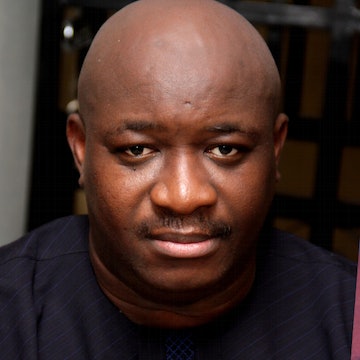Three freedom of expression and media development organizations today issued a joint call on Federal and State Governments to take urgent measures to facilitate access to the Internet for all Nigerians in accordance with the government’s international obligations. They stressed that access to the internet is no longer a matter of mere convenience but a fundamental prerequisite for full citizenship and participation in modern society.
In a joint statement signed by Dr. Akin Akingbulu, Executive Director of the Centre for Media and Society (CEMESO); Mr. Lanre Arogundade, Executive Director of the International Press Centre (IPC); and Mr. Edetaen Ojo, Executive Director of Media Rights Agenda (MRA) in commemoration of this year’s International Day for Universal Access to Information (IDUAI), the organizations urged the government to take immediate and comprehensive action to bridge the digital divide by exploring innovative solutions to provide universal and affordable internet connectivity to all citizens, regardless of their location or economic status.
According to them, universal access to the internet has become imperative in the digital age “with many countries in Africa and elsewhere in the world already providing or ensuring high quality Internet connectivity for all their citizens free of charge”, which makes it “unacceptable that millions of Nigerians continue to wallow in digital wilderness”.
The organizations are the Nigerian members of the International Freedom of Expression Exchange (IFEX), a global network of freedom of expression organizations, and its continental network, the African Freedom of Expression Exchange (AFEX), and are collaborating under the banner of the Partnership for Media and Democracy (PAMED).
They recalled in their joint statement that Nigeria was a co-sponsor of the United Nations Human Rights Council resolution A/HRC/20/L.13 of July 5, 2012, wherein the global human rights body called on “all States to promote and facilitate access to the Internet”.
They argued that having worked with a handful of other countries, namely the United States, Brazil, Sweden, Turkey and Tunisia, to initiate and propose the idea to the world for all States to facilitate access to the Internet for their citizens, it is ironic and reflects negatively on Nigeria that more than 11 years after the resolution was adopted, it has no policy or plan in place for the realization of the goal for its own citizens.
The organizations also cited the provisions of Paragraph 37 of the Declaration of Principles on Freedom of Expression and Access to Information in Africa, adopted by the African Commission on Human and Peoples’ Rights, which imposes a mandatory obligation on member States of the African Union to, “in cooperation with all relevant stakeholders, adopt laws, policies and other measures to provide universal, equitable, affordable and meaningful access to the internet without discrimination.”
The organizations noted that while a significant portion of Nigeria’s population enjoys the benefits of the online world, there remains a sizable segment of the society that is excluded, marginalized, and disadvantaged due to their lack of access to the internet, arguing that such exclusion raises critical questions about the status of such people as citizens in the digital age where many public services and other benefits are now available only to those who are online.
Observing that this year’s celebration of the International Day for Universal Access to Information is focusing on the importance of the online space for Access to Information, they argued that the digital age has transformed the way we live, learn, work, and communicate and that access to the Internet had become a necessary means for the exercise of the rights to freedom of expression, access to information and other human rights online.
The organizations insisted that those who are currently not online are being unjustifiably denied their full citizenship rights and benefits, including access to critical public services and other benefits that exist online in the digital age and urged Federal and State Governments to take advantage of this year’s celebration of the international right to information Day to commit themselves to redressing this undesirable reality.
They also called on Federal and State governments to take urgent steps to boost public trust and confidence in the internet, including by putting an end to attacks on journalists, bloggers and other citizens for expressing themselves online, describing such practices as a violation of the right to freedom of expression as well as the spirit of the 2012 UN Human Rights Council resolution co-sponsored by Nigeria, which affirmed that “the same rights that people have offline must also be protected online.”
The organizations also urged the government to ensure that all members of society, including vulnerable groups such as children and adolescents, are protected online by adopting appropriate policies and legislation, undertaking media and digital literacy programmes, among other measures.
They appealed to the government to take special care as it launches 5G telecommunication networks and services in Nigeria to ensure that the introduction of the technology in the country bridges rather than exacerbates the digital divide, including by ensuring that the services are affordable for ordinary citizens.

